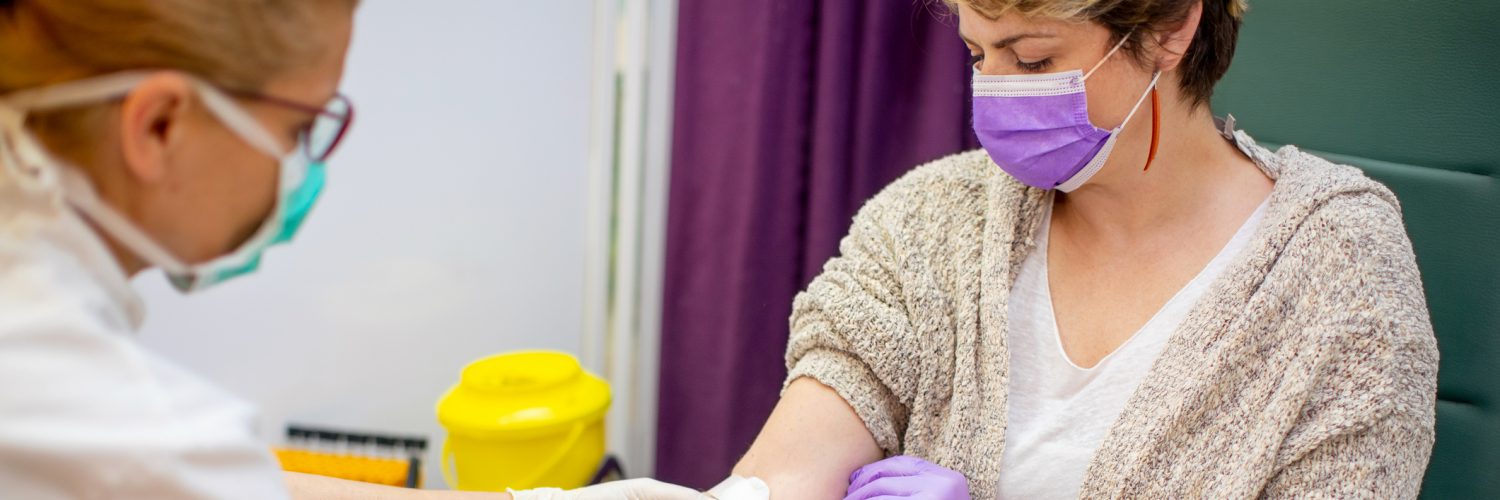January is National Blood Donor Month, an opportunity to acknowledge the efforts of blood donors as well as encourage new donations. By becoming a blood donor, you can help others and potentially save the lives of three people! In the U.S., someone needs a blood transfusion every two seconds, creating an ongoing need for donations. Blood donations have been significantly reduced by COVID-19 and fear of shortage is looming. By having a supply ready, healthcare providers can have access to the blood they need to help people. It has never been more important to donate blood!
Who is eligible to donate blood?
General eligibility requirements to donate include being:
- In good health
- At least 17 years old
- At least 110 pounds
In addition to these criteria, recent travel, current and recent medications and ongoing medical conditions may affect a donor’s eligibility. For more information to help determine if you may be eligible to donate, review the American Red Cross’ eligibility requirements here.
How does COVID-19 affect donation eligibility?
The American Red Cross is being very cautious when it comes to COVID-19 and donations. If you are interested in donating blood, but have had a recent diagnosis of COVID-19, tested positive through a diagnostic test or have any symptoms of COVID-19, it is necessary to wait at least 14 days before you can donate.
If you have been vaccinated for COVID-19 with either the Pfizer or Moderna vaccine, you are able to donate blood without waiting. Click here for details.
The America Red Cross is testing all donations, including blood, platelet and plasma, for COVID-19 antibodies so these donations can be utilized to help COVID-19 patients in need.
What safety protocols are in place to protect donors and staff from getting or spreading COVID-19?
In addition to the standard blood safety protocols for donations (wearing gloves, wiping down areas after every collection, new collection sets for each donor, aseptic scrub to prepare the arm, and donor mini-physicals), the American Red Cross has implemented the following safety measures:
- Staff health assessments prior to event
- Donor temperature checks prior to entering
- Hand sanitizer stations upon entry and throughout the facility
- Enhanced disinfection of equipment and surfaces
- Social distancing between donor beds, waiting and refreshment areas
- Face mask requirements for staff and donors
- Encouraging donors to bring their own blankets, if needed, based on donation type
How can I find a blood donation event near me?
To find a blood drive in your area, visit the Red Cross’ online search tool. Additionally, you can also donate at any number of donation centers across the country. The American Association of Blood Banks (AABB) offers a blood bank locator online here to help you find a facility near you.
Appointments are strongly encouraged. To schedule an appointment to donate, use the free Blood Donor App, visit redcrossblood.org or call 1-800-RED CROSS (1-800-733-2767).
To learn more about blood donation, please visit any of the websites below for additional information:



